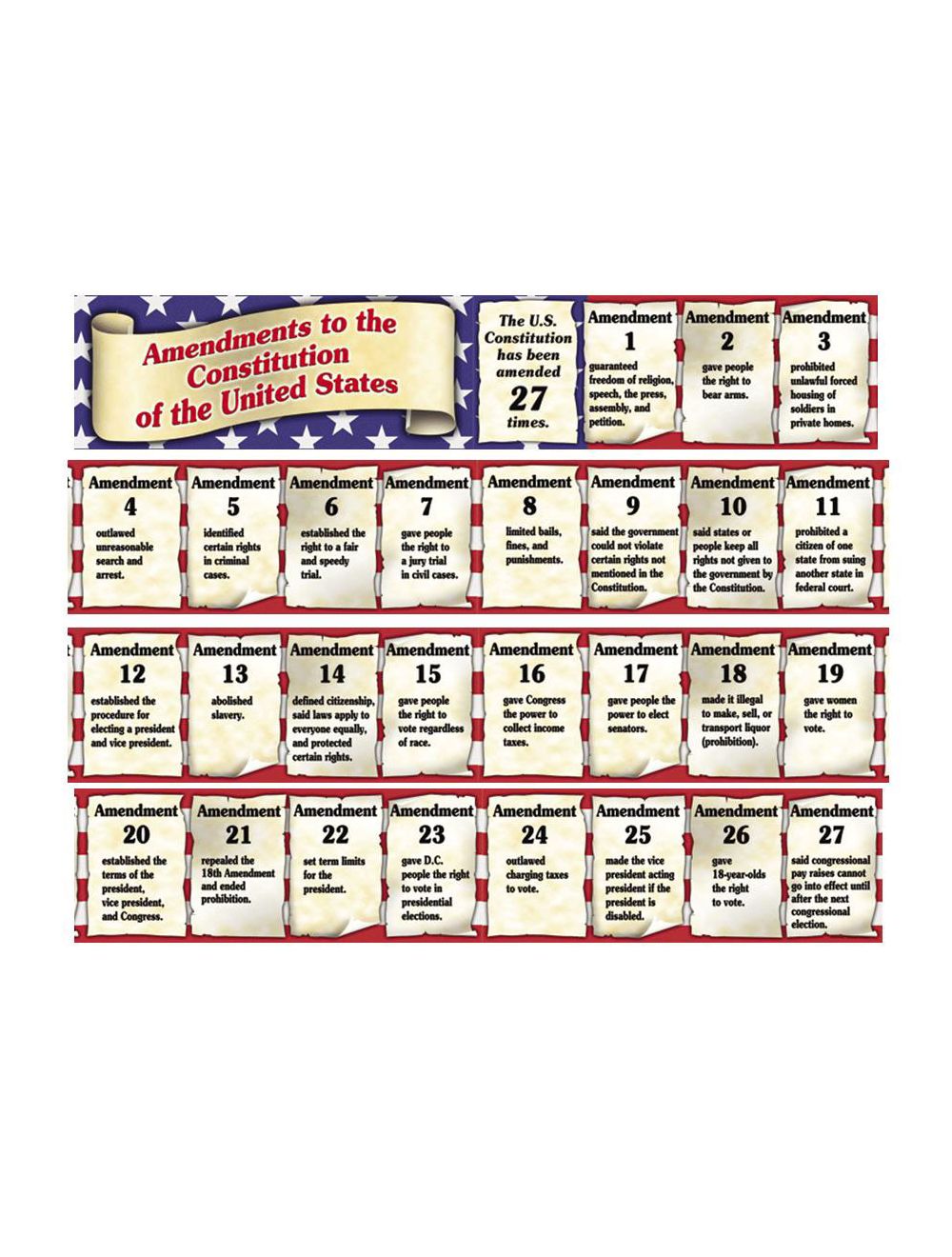Understanding the key amendments in various legal frameworks is crucial for navigating modern life. These amendments, whether related to environmental regulations, tax laws, or civil rights, play a pivotal role in shaping our society and protecting individual freedoms. They serve as essential tools that adapt legislation to contemporary needs while preserving fundamental principles.
From storm water management programs to federal sentencing guidelines, amendments ensure that laws remain relevant and effective. By exploring how these changes impact your daily life, you can better understand your rights and responsibilities within the legal system. This article delves into several significant amendments across different sectors, highlighting their implications today.
Enhancing Environmental Protection: California's Storm Water Program
The Trash Amendments introduced under California's Storm Water Program aim to enhance environmental protection by addressing pollution from municipal separate storm sewer systems (MS4), industrial sites, and construction projects. These amendments require permittees to implement measures that reduce trash discharge into waterways, ensuring cleaner ecosystems and healthier communities.
By mandating stricter controls on stormwater runoff, the program seeks to minimize contamination risks associated with urban development. Permittees must adhere to specific guidelines outlined in the National Pollutant Discharge Elimination System (NPDES) permits, which regulate discharges into U.S. waters. Compliance ensures not only environmental preservation but also public health safety.
California's commitment to sustainable practices through such amendments reflects broader efforts nationwide to combat pollution and promote ecological balance. As industries adapt to these new standards, they contribute positively to both local environments and global conservation goals.
Tracking Tax Returns: IRS Amended Return Status
For individuals who have filed an amended tax return using Form 1040-X, checking its status becomes important after submission. Typically, taxpayers can verify progress approximately three weeks post-submission via the Internal Revenue Service (IRS) website. However, processing times may vary between eight to twelve weeks depending on workload and complexity.
This waiting period allows the IRS sufficient time to review and process each amendment thoroughly. During this phase, any discrepancies or additional documentation required might delay final approval further. Therefore, patience is advised while awaiting confirmation of acceptance or rejection of changes requested.
Staying informed about the status of your amended return helps manage expectations regarding potential refunds or liabilities adjustments. Utilizing online resources provided by the IRS simplifies tracking procedures significantly, offering transparency throughout the entire process.
Expanding Disability Rights: ADA Amendments Act of 2008
The Americans with Disabilities Act Amendments Act of 2008 redefined disability criteria to broaden protections afforded under the original ADA legislation enacted in 1990. Its primary objectives include reinforcing the mandate for eliminating discrimination against individuals with disabilities and clarifying definitions used in determining eligibility.
Through legislative clarification, Congress sought to restore congressional intent behind the ADA by overturning restrictive court interpretations that had narrowed its scope over time. Consequently, more people qualify for protection against workplace bias based on perceived impairments or medical conditions.
This landmark amendment strengthens equal opportunity guarantees for millions of Americans living with disabilities. It underscores society's ongoing commitment towards fostering inclusivity and accessibility across all facets of life – from employment opportunities to public accommodations.
Updating Urban Planning Policies: Florida Comprehensive Plans
In Florida, comprehensive plans serve as blueprints guiding growth and development within municipalities. Plan amendments allow local governments to adjust strategies according to evolving demographic trends, economic conditions, and environmental considerations. Submitting proposals involves uploading necessary documents through platforms like Florida Papers.
Accessing comprehensive plans and their corresponding amendments provides stakeholders valuable insights into future zoning decisions, infrastructure investments, and land-use policies. Public participation plays a critical role during review stages, enabling residents to voice concerns or suggest improvements before final adoption.
Such transparency fosters collaborative governance where diverse interests converge toward sustainable community development. Regular updates ensure alignment with current priorities while maintaining long-term vision consistency across successive administrations.
Reforming Sentencing Guidelines: Proposed Federal Amendments
Proposed amendments to the Federal Sentencing Guidelines seek to refine judicial discretion when imposing sentences for federal offenses. Compiled texts offer unofficial drafts aimed at soliciting public feedback prior to formal implementation. These revisions address emerging issues identified within existing frameworks requiring recalibration.
Key areas targeted by proposed changes encompass drug-related crimes, white-collar offenses, and repeat offenders' treatment. Emphasis lies on promoting proportionality between crime severity and punishment imposed while reducing disparities among similarly situated defendants.
Engaging stakeholders through open consultation processes enhances credibility and effectiveness of revised guidelines. Once finalized following appropriate reviews, they become integral components shaping criminal justice administration nationwide.
Adjusting Economic Sanctions: Cuban Assets Control Regulations
Office of Foreign Assets Control (OFAC) amends the Cuban Assets Control Regulations (CACR) to align regulatory provisions with presidential foreign policy directives concerning U.S.-Cuba relations. Such modifications reflect diplomatic shifts intended to foster engagement rather than isolationist approaches previously emphasized.
New amendments introduce flexibility in financial transactions involving Cuban entities, expanding permissible activities without compromising national security interests. Enhanced authorization mechanisms streamline approvals for authorized travel, remittances, and commercial exchanges beneficial to both nations.
These regulatory updates demonstrate adaptive capabilities within international sanctions regimes responding dynamically to geopolitical dynamics. Balancing economic interests alongside strategic objectives remains paramount in crafting effective foreign policies.
Navigating Legislative Changes: Pennsylvania General Assembly Amendments
The Pennsylvania General Assembly maintains an extensive database cataloging all proposed and enacted amendments spanning various legislative sessions. Researchers and citizens alike utilize advanced search functionalities to locate specific keywords or phrases embedded within complex legislative texts efficiently.
Bills and resolutions categorized numerically facilitate easy retrieval alongside detailed metadata enhancing contextual understanding. Sponsorship information links contributors directly to respective initiatives providing accountability mechanisms vital for democratic processes.
Comprehensive access to amendment records empowers constituents to engage meaningfully in policymaking discussions affecting their lives. Active participation ensures representation accurately reflects communal values and aspirations driving progressive reforms forward.

